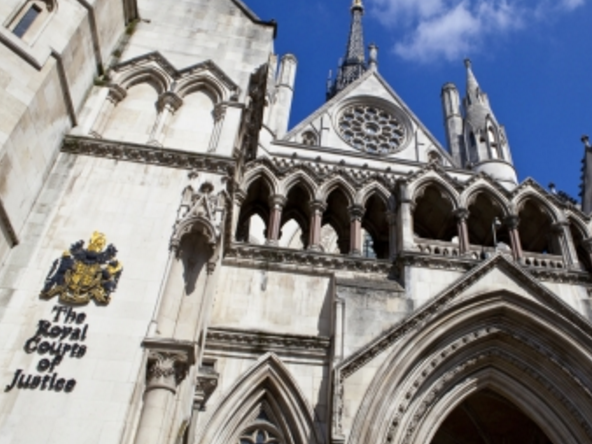
A man who sued for libel over a Guardian article he claimed forced him into hiding from the Taliban in Afghanistan has had his claim thrown out by a High Court judge.
Safiullah Ahmadi claimed more than £100,000 in damages over an article published on the paper’s website, which he alleged forced him into hiding as it created the “perception he is a gay man”.
The article, published in October 2022 and headlined “Gay Afghan student ‘murdered by Taliban’ as anti-LGBTQ+ violence rises”, concerned the killing of Hamed Sabouri, a gay medical student, in Kabul in August that year.
But Ahmadi said the image originally posted with the story was of him, which therefore put him at risk due to the “extremist and homophobic views that are prevalent” in Iranian and Afghan communities.
At a hearing on Wednesday, lawyers for Guardian News & Media asked a judge to rule in its favour before a trial, telling the court in London that the article was not defamatory and that the claim was “bound to fail”.
In a ruling on Friday, Mr Justice Johnson threw out the claim, stating that the photograph “is not arguably a sufficient basis” for a reader to believe that Ahmadi was the subject of the article.
He said: “Leaving aside the photograph, nothing in the article is capable of referring to the claimant. The article explicitly refers to someone else altogether.
“A reasonable reader, acquainted with the claimant, would not, after reading the full article, conclude that the article referred to the claimant or that it meant that the claimant was gay or that he had had a relationship with a man.”
Ben Silverstone, appearing for GNM on Wednesday, said in written submissions that the article was first published online at 7am on 18 October 2022, with the original image removed at 6.24pm that day.
He said that its use was “clearly an error and it was taken down very swiftly”, but that a complaint was not received for almost a year.
Silverstone continued in his written submissions that a statement that someone is a homosexual or in a relationship with another man could not have a defamatory meaning, and that as a result, Ahmadi could not suffer “serious harm” to his reputation in England and Wales.
In written submissions, Muhammad Zahab Jamali, for Ahmadi, said the libel claim should be allowed to continue, and that the publication of the photograph with the Guardian article made him the “object of ridicule”.
He said: “He was forced to go into hiding due to the extremists and homophobic views that are prevalent in the Irani and Afghan community.
“In March 2023, he returned to Afghanistan, where he went into hiding and remains so. He has been unable to study or undertake work due to a fear for his life in the Taliban regime and the perception he is a gay man arising from this publication.”
But Mr Justice Johnson said Ahmadi had “no reasonable grounds for bringing the claim” and had “no real prospect of success”.
He said: “Suggesting that a person is gay or in a same-sex relationship is not defamatory.
“It is not arguable that the publication, in its meanings on which the claimant relies, refers to the claimant [and] the claimant does not have a real prospect of establishing that he has sustained serious harm, or that the publication was likely to cause him serious harm.”
Email pged@pressgazette.co.uk to point out mistakes, provide story tips or send in a letter for publication on our "Letters Page" blog
